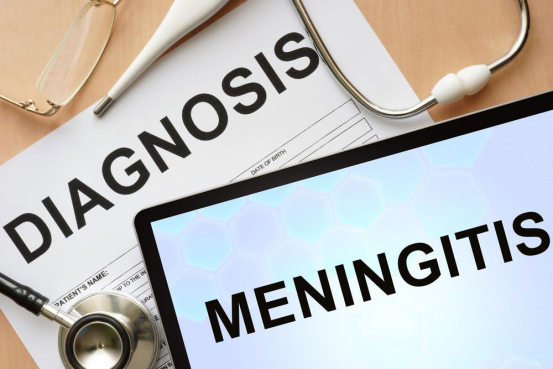Understanding Meningitis: Symptoms, Causes, and Treatment Options
What is Meningitis?Meningitis is a rare but serious infection that affects the meninges, the protective membranes covering the brain and spinal cord. These membranes play a crucial role in shielding the central nervous system.
What is Meningitis?Meningitis is a rare but serious infection that affects the meninges, the protective membranes covering the brain and spinal cord. These membranes play a crucial role in shielding the central nervous system.
Meningitis occurs when these delicate layers become inflamed due to infection. It can be caused by various pathogens, including bacteria, viruses, and fungi. The severity and potential risks vary depending on the type of meningitis and the individual’s health.

Types of Meningitis
There are three main types of meningitis:
- Bacterial Meningitis:
This is the most severe form of meningitis and can be life-threatening if not treated promptly. Bacterial meningitis is caused by bacteria that enter the bloodstream and spread to the meninges, typically through close contact with infected individuals. Immediate medical intervention is required to treat this condition effectively.
- Viral Meningitis:
Viral meningitis is more common and generally less severe than bacterial meningitis. Although viral meningitis may not be life-threatening, it still requires medical attention. This form is often caused by viruses such as enteroviruses, herpes simplex virus, or mumps virus.
- Fungal Meningitis:
Fungal meningitis is a rare form, typically affecting individuals with weakened immune systems. This type of meningitis can develop from fungal infections that spread from other parts of the body, particularly in those with compromised immunity.
How Meningitis Spreads
Meningitis-causing infections can spread through direct contact with respiratory droplets or bodily fluids from an infected person. Activities such as kissing, coughing, or sharing utensils or toothbrushes can facilitate the transmission of these infections. Interestingly, some people who carry the viruses or bacteria may not show symptoms themselves but can still spread the infection to others.
Who is at Risk for Meningitis?
While anyone can contract meningitis, certain groups are at higher risk:
- Unvaccinated individuals: Failure to complete vaccination schedules can increase the risk of bacterial meningitis, particularly in children and teenagers.
- Children and young adults (ages 20 and under): Young people are more likely to be affected, especially those living in communal settings like dormitories or child care centers.
- Older adults (over 55 years): Aging individuals tend to have weaker immune systems, which can make them more susceptible.
- People with weakened immune systems: Individuals with compromised immune defenses, such as those with HIV or on immunosuppressive medications, are more likely to contract meningitis.
Symptoms of Meningitis
The symptoms of meningitis can vary depending on the type of infection, but the most common signs include:
- Severe headaches
- High fever
- Nausea and vomiting
- Stiff neck
- Sensitivity to light
- Drowsiness or lethargy
- Rapid breathing
- Cold hands and feet
- Pale or blotchy skin
In infants, symptoms may include:
- Refusal to be held
- A stiff body
- Constant crying or loud cries
- Trouble feeding or lack of energy
If any of these symptoms appear, it is important to seek medical care immediately, as early diagnosis and treatment can be critical, especially in bacterial meningitis.
Preventing Meningitis
Vaccination is the most effective way to prevent meningitis caused by bacteria and viruses. Routine vaccines can protect against several strains of bacterial meningitis, such as those caused by Neisseria meningitidis and Streptococcus pneumoniae. It's important to follow the vaccination schedules recommended by healthcare providers, especially for children, teenagers, and young adults.
Maintaining good hygiene practices, such as regular handwashing and avoiding close contact with infected individuals, can also help reduce the risk of spreading meningitis-causing infections.
Seeking Medical Help
If you suspect someone may have meningitis, it is crucial to consult a healthcare professional immediately. Diagnosis typically involves blood tests, a lumbar puncture (spinal tap), or imaging tests to determine the cause of the infection. Treatment will depend on the type of meningitis, with bacterial meningitis requiring antibiotics, while viral meningitis may be managed with supportive care.
Conclusion
Meningitis is a serious but treatable condition. Understanding the symptoms, causes, and preventive measures is essential for early detection and effective treatment. Vaccination and timely medical attention can significantly reduce the risks associated with meningitis. If you or someone you know shows signs of meningitis, seek medical help right away to ensure the best possible outcome.